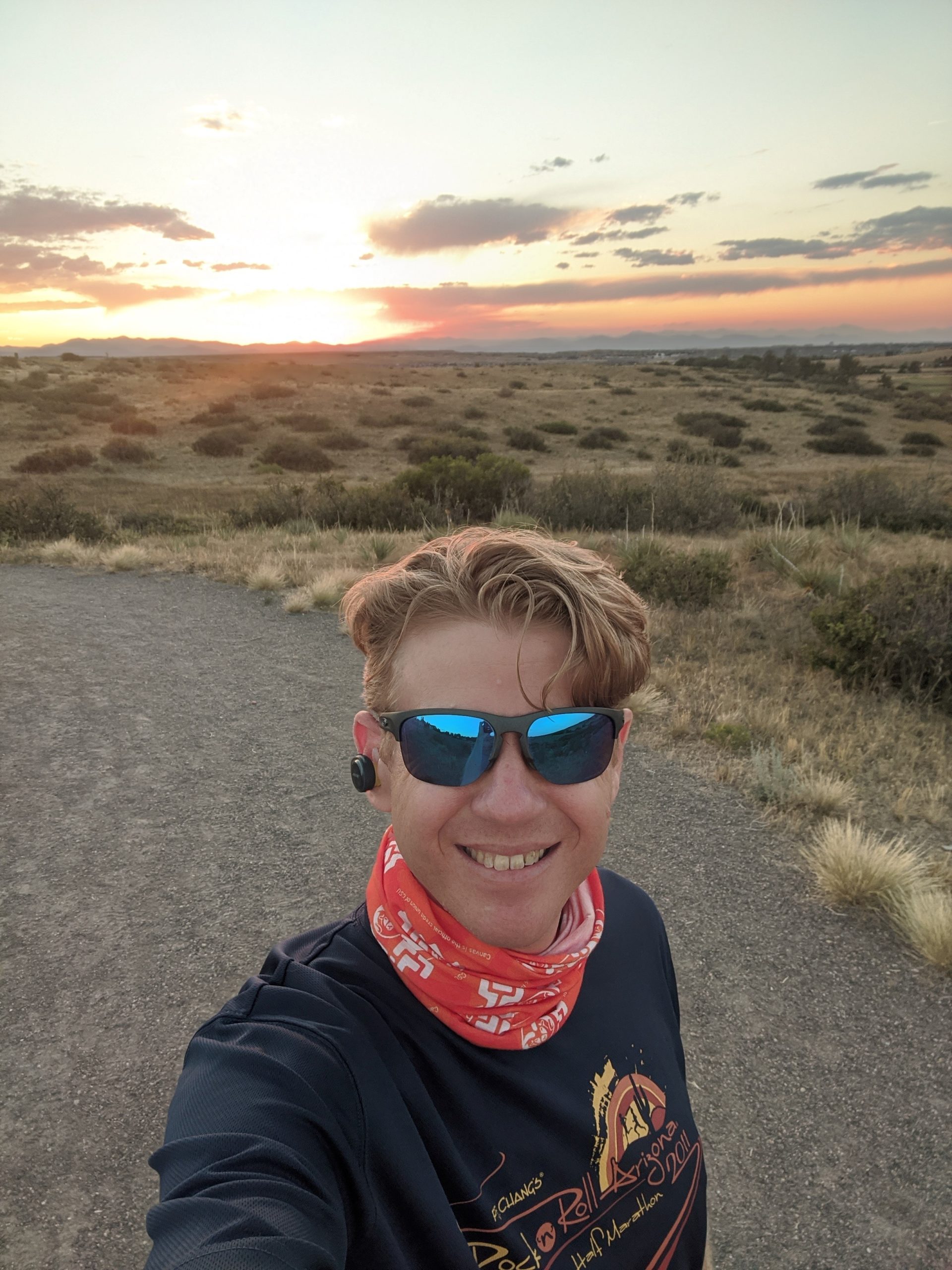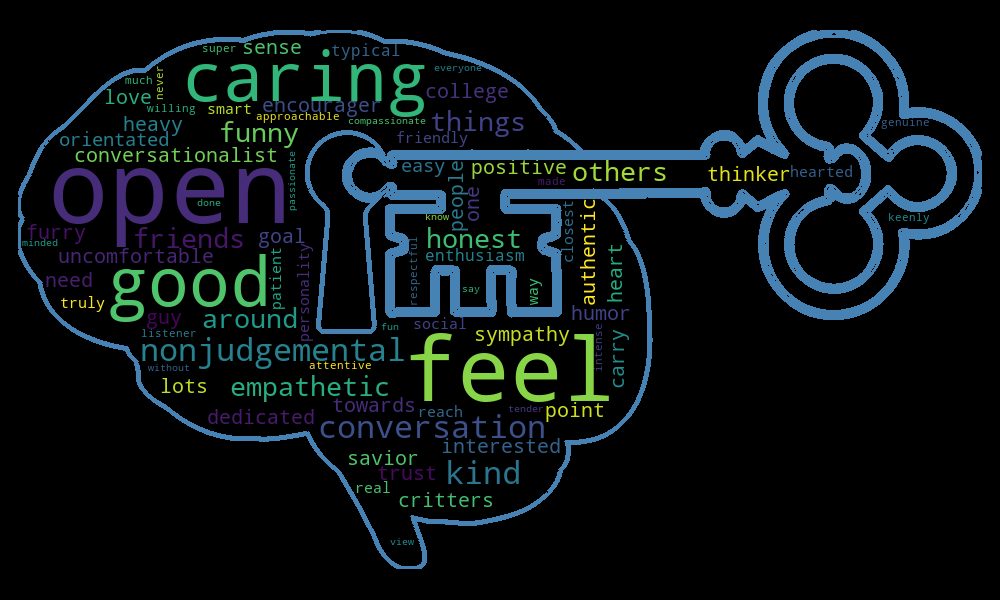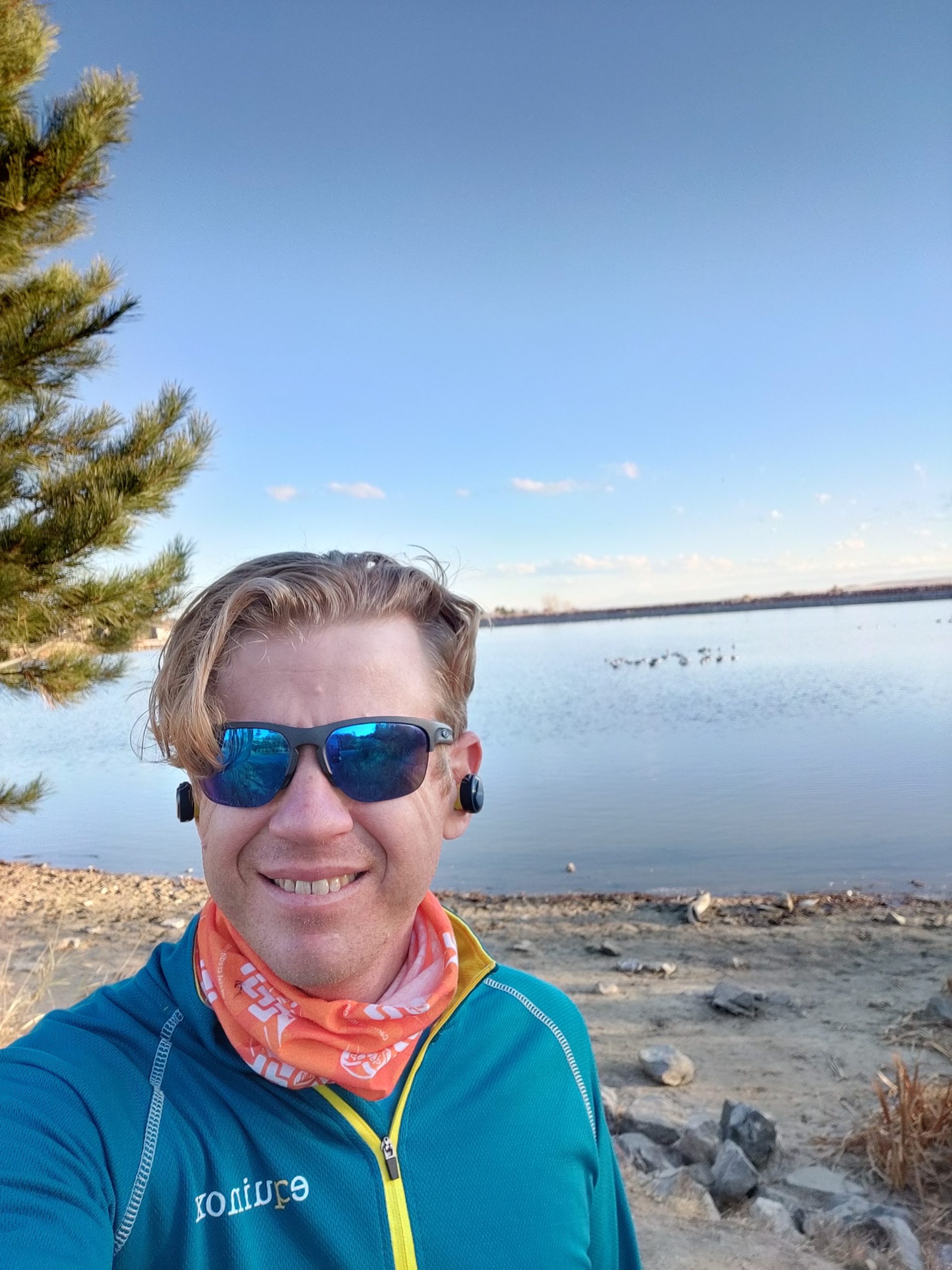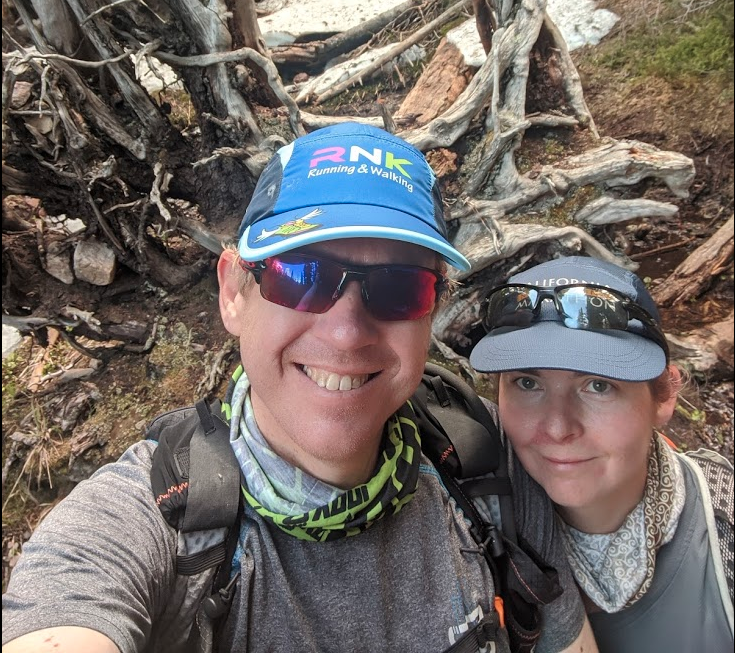Craig: A Tale of Hope
The views and opinions expressed in the following story are those of the author and do not necessarily reflect the opinions of Mental Health Colorado.
Trigger warning: The following story includes details that some might find triggering, including physical, emotional, and sexual abuse and suicidal ideation.
By: Craig Roush
 My name is Craig. And this is my story of hope.
My name is Craig. And this is my story of hope.
From an early age, through my teen years, and into my time in the military, I struggled with my mental health. Though it does not define me, my story involves nearly dying by suicide twice, finally getting help and, finally, feeling joy.
The first time I recall wanting to die, I was around 8 years of age. We were on a family vacation in Orlando in the 1980s. I am not sure exactly what precipitated these feelings; like most memories with trauma you get bits and pieces of it. I stood in a shower, hopeless at such a young age, and just let my body fall forward through the shower curtain. The pain I felt reliving this day was excruciating. I saw my pain through the eyes of a 42-year old adult. The sadness, the feelings of not being loved were overwhelming. I was hurting, and I didn’t know why….
These feelings continued, intensifying into my teen years. Most of the time, I felt like I was living in my older sister’s shadow. I was not as good in school as she was; teachers that had my sister in class expected more out of me than other kids. It was extraordinarily difficult. I developed what my therapist calls “less than syndrome.” No matter what I did, no matter the level of personal success, I never felt adequate in the eyes of my parents. This feeling of inadequacy made me seek out acceptance from anyone that would give it to me. This ultimately led to some truly awful things happening to me.
When you are young and living in a survival mode, you are not equipped to handle situations as you are as an adult. You need the adults in your life to protect you and help you deal with difficult circumstances. All I wanted to do is fit in, and be accepted. I never had a sense of belonging with guys. I went through my entire youth and adult life only really having strong friendships with girls. Girls gave me empathy and safety. I never confided in any of my guy friends, and rarely was available emotionally in those friendships.
I was befriended by a guy a few years older than me. I believe I was 12, maybe 13. He was accepting, and was there for me, he always wanted to do things with me. I felt like I had found a true friend.
The brain is really good at protecting you from traumatic memories. When they do come back, they can be in fragments and generally coincide with both strong emotional and physical distress. Sometimes it’s hard to place them in a timeline. The week prior in therapy I had felt amazing, we were able to make real progress. Then the following week my system unloaded and my world came crashing down. In a session that went over by thirty minutes, I discovered I was sexually molested by this older boy. I don’t know how often or how much. I didn’t remember it even happened to me until I was 42 years old. It was a huge piece of the puzzle that is my life.
The years following, I would experience dramatic emotional swings and depressive episodes. My parents were largely absent from my day to day life and likely unaware of what was going on in my head. Nearly every day, I wondered if I should even continue on with life. During that time I was still longing for relationships with guys. There were many other things that were contributing factors to my trauma.

Early on in therapy, I was given an exercise to ask all my girl friends why I am their friend, I was really struggling with why “anyone” would actually like me, especially when I hated virtually everything about myself (at that time). So I took what they sent me and made a pictorial of it. I found it to be one of the most powerful exercises I have ever done.
After my parents’ divorce my mom had an abusive boyfriend that hurt me both physically and emotionally. I also had issues at school with bullies and an inability to fit in, anywhere. With abuse at home and at school, I felt as if nowhere in my life was safe. I do have good memories from my childhood, but they are marred with the trauma I experienced.
In 1996, I graduated high school and joined the military. It was in the Navy that my life would be forever changed, and I would carry the largest piece of shame around with me into my adult life. Like everywhere I was before, I didn’t fit in. I wanted to so badly, but I always felt awkward. I had a billet for the Nuclear Power program. During bootcamp, I lost my billet due to recruiting mistakes. I was assigned to a submarine without a job. I felt like I was at the bottom of the barrel. Between hazing and my inability to fit in, every day was reliving a nightmare where I never felt safe. I saw no way out. This ultimately led to me trying to take my own life. I reported what happened to my chain of command , and I was promptly discharged with a personality disorder.
To this day, I carry the shame of a discharge of “General Under Honorable Conditions.” I would not celebrate Veterans Day. Most of my friends did not know I even served. Those who did know, I choose to hide the details of my discharge. I never told the entire story to anyone and just left them to assume the military let me go because of the recruiting mistakes.
When I came home after being discharged, I had so much anger and sadness. I was literally living in a dark cloud. Somehow I managed to turn this dark cloud into success and ultimately found my way through college with a degree in Electrical Engineering. Looking back on it now, I honestly have no idea how I made it, but I did. My trauma lived on. My feelings didn’t go away; I buried them and invalidated them until they were locked neatly in a box in the depths of my head. This was not the smartest thing to do, but I was living in fight or flight mode, and it was the only tool I knew. I was good at compartmentalizing..
I got extremely good at faking that I was okay. Thanks to being a high school and college debater, I learned skills that allowed me to come across as polished and confident. But things were not okay, I was dying inside. My depression made me ghost people that I deeply cared for. It made me run from uncomfortable situations, changing course mid-stream to get away. This included jobs, friendship, and family.
I lived in a secret dark cloud that I hid from family, friends, and my wife. What can be overlooked is you can feel awful, but still have amazing memories, you can laugh, and experience joy. I go back and look at our nearly 16 years of marriage and see a majority of our fights correlated to my headspace. My trauma taught me how to suppress my emotions. It was my number one defense against them. My therapist told me it is like trying to hold a beach ball underwater. You can keep pushing it down, but eventually it is going to escape your grasp and will shoot up above the surface with a tremendous amount of force. Since I am writing this story now, you probably guessed that things have gotten better, and that there is hope. But I needed another good rock bottom before I could see recovery.
In 2019, I said goodbye to my grandmother, my dog, a friend from high school, and my uncle. Additionally, we were going through a very stressful remodel at our house. All of this was in addition to the general stress of life. It created a perfect storm. By August, I was crying all the time for no clear reason. I could no longer mask my emotions. One day at work following a heated meeting, I locked myself in the accessible restroom and cried for a solid 20 minutes. As I sunk deeper into the depression, my system was shutting down, I pushed people away from me. I wasn’t listening to the advice of my wife to get help. Meanwhile, I thought that I was screaming “SAVE ME” and nobody was listening. My system was tricking me to believe that nobody cared, and that the burden of my existence was so clear that I shouldn’t be here anymore. I mistakenly thought the world could go on and the world would be a better place if I was not part of it.
A good friend I met through a running group recognized what was happening, even though I did not. Somehow she was able to get through to me and convince me to go see my doctor. I was hesitant to go. I was afraid that I would lose my job. I work on a military installation that requires me to report mental health issues and any medication.
I found the courage to see my doctor and started medication. Medication is not a happy pill. It doesn’t just make you feel better. It doesn’t heal the trauma. It is more about keeping the emotional pendulum from swinging so fast. The leveling of my system helped me come out of the horribly dark place, but the suicidal ideation remained. The trauma was still unhealed. 
In the months following, I finally told my wife my big secret about the military. It was extremely difficult, and I didn’t pick a great time to do it, but I did get out there. She has been amazing and supportive. However, this was very painful for her. I lied to her for a very long time about my truth. I am forever grateful for her support. In my head, I convinced myself she would leave me if she knew. It was the farthest thing from the truth. I just didn’t understand what it meant to be truly loved.
You are probably asking yourself where the hope in this story is? Where is the happy ending? I promise we are getting there.
In December of 2019, I started therapy. My therapist was male. I was worried that my difficulty opening up to guys, talking to a male would never work. I had never done therapy before and had no idea what to expect. He was absolutely amazing. His ability to challenge me in a caring way really helped me open up about things. My fear of therapy was gone. We did once-a-week sessions into the beginning of the pandemic. A few things came out during therapy that prompted him to recommend that I see a trauma therapist. I started trauma therapy at the beginning of the pandemic.
The next few months were the hardest of my life, without even factoring in the global pandemic. In these months I learned a lot about myself and my trauma, and I began to heal. With each session, we healed a part of me and I got a little better. At the beginning of therapy, I could not have envisioned where I would end up. I could not see a scenario where I was better. I often joke that the pandemic truly saved my life. It gave me time to really focus on myself, and heal the parts of me that were hurting.
I am now able to be a lot more open with my struggles. I am not fully cured, but I have found balance. I still go to therapy weekly. I am still working on healing. The best part? I go for weeks and weeks without any suicidal ideation. I actually look forward to doing the little things. I am starting to see the joy and love of life that I never thought possible. It truly has been eye-opening. Being more open about this uncomfortable topic has created new friendships. It has given me support from people going through their own struggles. When you see the signs that say, “You are not alone,” you truly are not.
As a society we are still not comfortable talking about it. Thank you to Mental Health Colorado for shifting our culture to end shame and discrimination. I hope that my story will inspire people to get help, confide in their loved ones, and find hope. We are on this journey together. What happens to us is not our fault, but it is our responsibility to heal.



